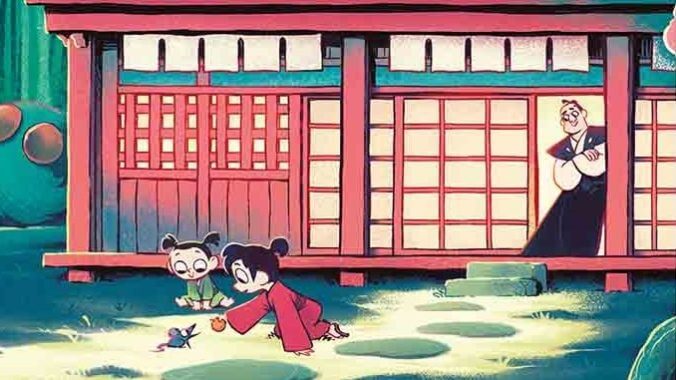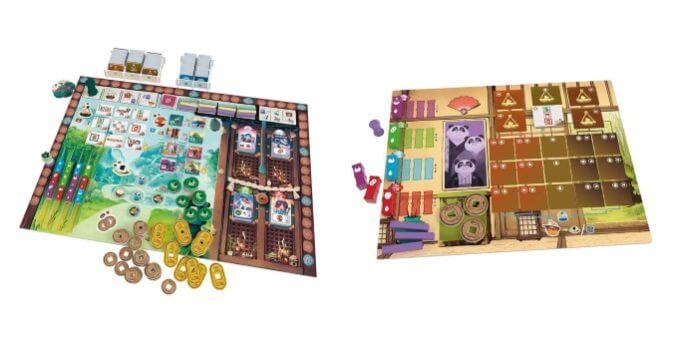Bamboo Is a Surprisingly Meaty Euro-Style Board Game

One challenge that game designers have a hard time incorporating into their games is the idea of balance. Most competitive or solo games have a simple goal: rack up as many points as you can, whether to score more than your opponents or to beat an automa player or just to set a personal high score. What you do to achieve that higher point total doesn’t matter as long as you follow the rules. (I do not condone cheating, sorry.)
What you scarcely see in games, though, is the idea of balancing something else against the quest for points, whether it’s morality (which will always remind me of the 1985 videogame Ultima IV: Quest of the Avatar) or ethics or anything else beyond scoring. Some games, notably Reiner Knizia’s Tigris & Euphrates, introduce balance by discouraging players from running up the score; in that game, you score separately across four different colors, and your lowest score is the one that counts, so you need to pay attention to all of them as the game unfolds.
Bamboo tries to introduce balance in a slightly new way, taking some elements of feng shui for its theme and forcing players to balance their scoring quite literally. Players try to increase their happiness by taking bamboo shoots from their personal boards to take home improvement tiles, scoring tiles, or food tokens from the main board. Players get most of their points from placing tiles in their houses on their personal boards, but at the end of the game, if you have more victory points on either the left side or the right side, you take a decent penalty equal to double the points difference.
The game takes place over four rounds, each of which has four seasons, although nearly all of the game occurs in the summer as that’s when players take their actions. In spring, players receive one additional incense stick, which they’ll use to take actions in summer, and gain one ‘gift’ token that gives you a single bonus action. In summer, players take actions with those incense sticks, moving them to different colored spaces on their own boards with at least one bamboo piece on them. The bamboo pieces have different action symbols representing the four possible actions—take money, take food, buy a home improvement tile, take a scoring tile, or score a completed scoring tile—plus a wild action symbol.
-

-

-

-

-

-

-

-

-

-

-

-

-

-

-

-

-

-

-

-

-

-

-

-

-

-

-

-

-

-

-

-

-

-

-

-

-

-

-

-









































